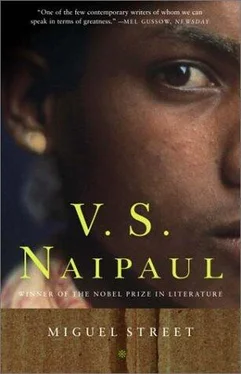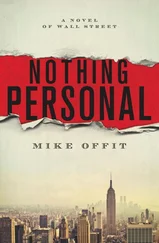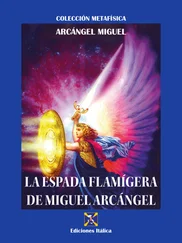My mother said, ‘Well, it easy easy. He is a Brahmin, he know the Ramayana, and he have a car. Is easy for him to become a pundit, a real proper pundit.’
Mrs Bhakcu clapped her hands. ‘Is a first-class idea. Hindu pundits making a lot of money these days.’
So Bhakcu became a pundit.
He still tinkered with his car. He had to stop beating Mrs Bhakcu with the cricket bat, but he was happy.
I was haunted by thoughts of the dhoti -clad Pundit Bhakcu, crawling under a car, attending to a crank-shaft, while poor Hindus waited for him to attend to their souls.
It was not until 1947 that Bolo-believed that the war was over. Up till then he used to say, ‘Is only a lot of propaganda. Just lies for black people.’
In 1947 the Americans began pulling down their camp in the George V Park and many people were getting sad.
I went to see Bolo one Sunday and while he was cutting my hair he said, ‘I hear the war over.’
I said, ‘So I hear too. But I still have my doubts.’
Bolo said, ‘I know what you mean. These people is master of propaganda, but the way I look at it is this. If they was still fighting they woulda want to keep the camp.’
‘But they not keeping the camp,’ I said.
Bolo said, ‘Exactly. Put two and two together and what you get? Tell me, what you get?’
I said, ‘Four.’
He clipped my hair thoughtfully for a few moments.
He said, ‘Well, I glad the war over.’
When I paid for my trim I said, ‘What you think we should do now, Mr Bolo? You think we should celebrate?’
He said, ‘Gimme time, man. Gimme time. This is a big thing. I have to think it over.’
And there the matter rested.
I remember the night when the news of peace reached Port of Spain. People just went wild and there was a carnival in the streets. A new calypso sprang out of nothing and everybody was dancing in the streets to the tune of:
All day and all night Miss Mary Ann
Down by the river-side she taking man.
Bolo looked at the dancers and said, ‘Stupidness! Stupidness! How black people so stupid?’
I said, ‘But you ain’t hear, Mr Bolo? The war over.’
He spat. ‘How you know? You was fighting it?’
‘But it come over on the radio and I read it in the papers.’
Bolo laughed. He said, ‘Anybody would think you was still a little boy. You mean you come so big and you still does believe anything you read in the papers?’
I had heard this often before. Bolo was sixty and the only truth he had discovered seemed to be, ‘You mustn’t believe anything you read in the papers.’
It was his whole philosophy, and it didn’t make him happy. He was the saddest man in the street.
I think Bolo was born sad. Certainly I never saw him laugh except in a sarcastic way, and I saw him at least once a week for eleven years. He was a tall man, not thin, with a face that was a caricature of sadness, the mouth curling downwards, the eyebrows curving downwards, the eyes big and empty of expression.
It was an amazement to me that Bolo made a living at all after he had stopped barbering. I suppose he would be described in a census as a carrier. His cart was the smallest thing of its kind I knew.
It was a little box on two wheels and he pushed it himself, pushed with his long body in such an attitude of resignation and futility you wondered why he pushed it at all. On this cart he could take just about two or three sacks of flour or sugar.
On Sundays Bolo became a barber again, and if he was proud of anything he was proud of his barbering.
Often Bolo said to me, ‘You know Samuel?’
Samuel was the most successful barber in the district. He was so rich he took a week’s holiday every year, and he liked everybody to know it.
I said, ‘Yes, I know Samuel. But I don’t like him to touch my hair at all at all. He can’t cut hair. He does zog up my head.’
Bolo said, ‘You know who teach Samuel all he know about cutting hair? You know?’
I shook my head.
‘I. I teach Samuel. He couldn’t even shave hisself when he start barbering. He come crying and begging, “Mr Bolo, Mr Bolo, teach me how to cut people hair, I beg you.’ ‘Well, I teach him, and look what happen, eh. Samuel rich rich, and I still living in one room in this break-down old house. Samuel have a room where he does cut hair, I have to cut hair in the open under this mango tree.’
I said, ‘But it nice outside, it better than sitting down in a hot room. But why you stop cutting hair regular, Mr Bolo?’
‘Ha, boy, that is asking a big big question. The fact is, I just can’t trust myself.’
‘Is not true. You does cut hair good good, better than Samuel.’
‘It ain’t that I mean. Boy, when it have a man sitting down in front of you in a chair, and you don’t like this man, and you have a razor in your hand, a lot of funny things could happen. I does only cut people hair these days when I like them. I can’t cut any-and-everybody hair.’
Although in 1945 Bolo didn’t believe that the war was over, in 1939 he was one of the great alarmists. In those days he bought all three Port of Spain newspapers, the Trinidad Guardian, the Port of Spain Gazette, and the Evening News. When the war broke out and the Evening News began issuing special bulletins, Bolo bought those too.
Those were the days when Bolo said, ‘It have a lot of people who think they could kick people around. They think because we poor we don’t know anything. But I ain’t in that, you hear. Every day I sit down and read my papers regular regular.’
More particularly, Bolo was interested in the Trinidad Guardian. At one stage Bolo bought about twenty copies of that paper every day.
The Guardian was running a Missing Ball Competition. They printed a photograph of a football match in progress, but they had rubbed the ball out. All you had to do to win a lot of money was to mark the position of the ball with an X.
Spotting the missing ball became one of Bolo’s passions.
In the early stages Bolo was happy enough to send in one X a week to the Guardian.
It was a weekly excitement for all of us.
Hat used to say, ‘Bolo, I bet you forget all of us when you win the money. You leaving Miguel Street, man, and buying a big house in St Clair, eh?’
Bolo said, ‘No, I don’t want to stay in Trinidad. I think I go go to the States.’
Bolo began marking two X’s. Then three, four, six. He never won a penny. He was getting almost constantly angry.
He would say, ‘Is just a big bacchanal, you hear. The paper people done make up their mind long long time now who going to win the week prize. They only want to get all the black people money.’
Hat said, ‘You mustn’t get discouraged. You got to try really hard again.’
Bolo bought sheets of squared paper and fitted them over the Missing Ball photograph. Wherever the lines crossed he marked an X. To do this properly Bolo had to buy something like a hundred to a hundred and fifty Guardians every week.
Sometimes Bolo would call Boyee and Errol and me and say, ‘Now, boys, where you think this missing ball is? Look, I want you to shut your eyes and mark a spot with this pencil.’
And sometimes again Bolo would ask us, ‘What sort of things you been dreaming this week?’
If you said you didn’t dream at all, Bolo looked disappointed. I used to make up dreams and Bolo would work them out in relation to the missing ball.
People began calling Bolo ‘Missing Ball.’
Hat used to say, ‘Look the man with the missing ball.’
One day Bolo went up to the offices of the Guardian and beat up a sub-editor before the police could be called.
Читать дальше












